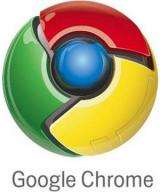(PhysOrg.com) -- Google is expected to release its Extensions Gallery for general users of the new Chrome browser this week, possibly at the Add-On Conference on browser extensions to be held on December 11, 2009. Google is a platinum sponsor of the conference. An extensions site was unveiled a couple of weeks ago, but only for the use of developers.
The Google Extensions Gallery is expected to be similar to the Themes Gallery, with a list of available extensions and a download button for each. The gallery will be the first official release for end users. Extensions and support for them will only be available initially for Windows, but they are also expected to be available in future for the coming Mac and Linux versions.
Extensions expected to be available include SEO (search engine optimization) extensions to assist in Internet marketing, Shareaholic, a social media extension, Gmail compose, which lets you quickly compose an email through your gmail account, and Quicksearch, which speeds up searches using your favorite search engine.
Google Tasks for Chrome will give you complete control of your Google Task List and synchronize it with your Gmail Task List, and for those websites that only work correctly in Internet Explorer, a Chrome IE extension is expected to be available to let you open a tab and view the site in IE without leaving Chrome.
Trials of the developer versions of the extensions have shown they can be added or removed easily without the need to restart the Chrome browser. Since Chrome has been developed in open-source, anyone can develop extensions for it and upload them via the Google Chrome Extension Developer Dashboard.
The availability of useful extensions for the Chrome browser will mean it is more customizable and possibly a stronger rival to Mozilla Firefox. Firefox can be easily customized by its add-ons, and this is one of the major reasons it has become so popular.
Google Chrome is a free browser that runs web pages extremely fast, and a raft of useful extensions may help it to reach Google's stated of of cornering at least 10% of the browser market share.
© 2009 PhysOrg.com























